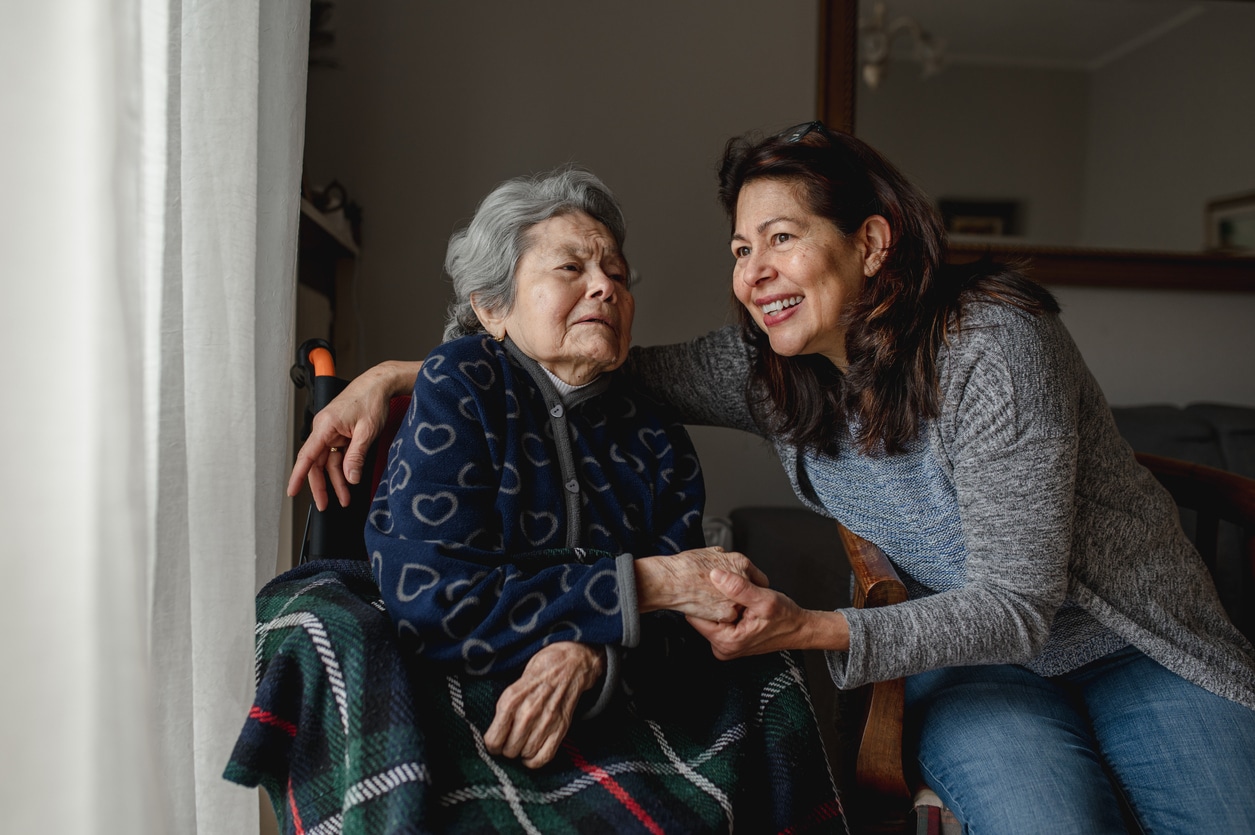Caring for a disabled parent can introduce unexpected stressors: Health concerns, ranging from arthritis and osteoporosis to diabetes and broken bones, can lead to a person not being able to stand up, walk, or even turn over in bed on her own. Being a caregiver for a parent in this situation is difficult, but you are not alone. In fact, about 21 percent of adult Americans provide care to disabled adults, according to the U.S. Department of Health and Human Services.
The Physical Strain of Caring for a Disabled Parent
Believe it or not, studies show that being a caregiver may actually help you live longer. But in order to reap those benefits you have to take care of yourself and your body. The physical demands on a caregiver for a disabled senior can be intense. Whether you’re helping someone into a wheelchair or the shower or turning him over in bed, being a caregiver for the disabled requires a lot of manual labor. It is important to keep these tips in mind:
- Stay in shape with regular exercise. Working on strength, flexibility, and balance will help you prevent injuries.
- Learn to lift with your legs, not your back. Back injuries are fairly common among caregivers. Learning to lift properly can help prevent them.
- Carry your loved one as close to you as possible to reduce any strain. This will also help you remain balanced and prevent injuries.
- Ask about equipment that can assist you. Your loved one’s doctor or physical therapist may be able to recommend lifts and other equipment that help relieve the physical strain on you.
- Ask your parent’s care providers for training in the proper way to lift and turn. Nurses are a great resource for learning these skills.
The Dangers of Emotional Duress
Caring for a disabled parent isn’t just physically demanding; it can also be emotionally demanding in ways that caring for an older loved one who is mobile is not. Sometimes, for example, your parent’s disability may simply be more than you can handle at home. Even though you may know that the best choice for everyone involved is to find an assisted living facility or nursing home for your loved one, many seniors today want to keep their independence. They may also resent choices made for them by their children, which can quickly lead to stress in the relationship and feelings of guilt for you.
Outside Resources
There are many resources available to help those caring for disabled parents. The services offered range from respite care and caregiver support groups to help to purchase adaptive equipment. You can find resources in your area by contacting any of the following people and organizations:
- Your loved one’s doctors and therapists
- Hospital outreach programs
- Organizations for your parent’s specific disability
- Local nonprofits focused on the disabled population
- Local religious groups
- Disabled American Veterans or other military family support groups
Caring for a disabled parent can be both physically and emotionally difficult in ways that those caring for an able-bodied aging parent may not understand. Luckily, there are things you can do to help alleviate the stress as well as a number of resources that can offer support and assistance to you and your family.



